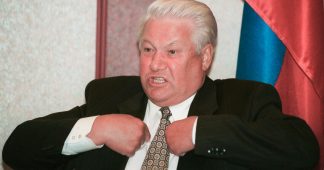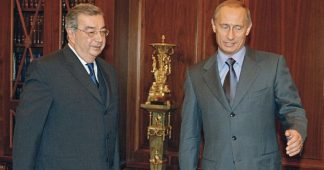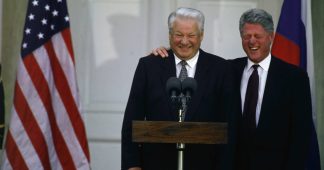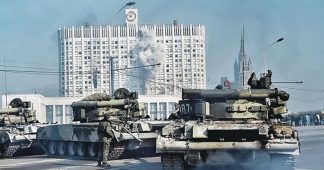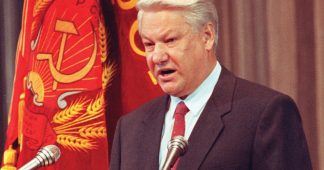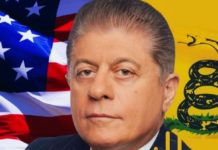By Jonny Tickle
12 Jun, 2021
The first Russian president, Boris Yeltsin, was surrounded by “hundreds” of CIA agents who told him what to do throughout his tenure as leader. That’s according to Ruslan Khasbulatov, the former chairman of Russia’s parliament.
Speaking to radio station Govorit Moskva, Khasbulatov claimed Yeltsin’s entourage was full of Americans. In 1991, he was elected to his leadership post with Washington’s help, it has been alleged, and it is still not yet known to what extent the US remained the voice in his ear throughout his presidency.
“There must have been a hundred [CIA employees],” Khasbulatov said. “They determined everything.” He also added that, after winning the presidential election, Yeltsin would send security officials and heads of departments to the US so the Americans could “examine them” and “give conclusions.”
Khasbulatov’s statement comes after former Russian vice president Alexander Rutskoy told online outlet Lenta that 12 full-time employees of the CIA helped carry out the landmark Yeltsin-Gaidar market reforms, systematically dismantling the centrally planned economic system and leading the country into shock capitalism. Rutskoy also claimed that, on one significant occasion, he overheard Yeltsin speaking to a stranger with a foreign accent.
However, according to Khasbulatov, everyone knew about Rutskoy’s links to the US, and American officials even influenced the former president to replace a considerable number of his appointees.
“On the whole, Rutskoy is absolutely right – Yeltsin was advised by foreigners,” he continued. “There is no secret here, and a great number of people know about it. I don’t have any detective stories about eavesdropping, but, in general, it’s well known. Yeltsin used to confer very closely on all personnel matters with foreign representatives.”
Yeltsin left office in 1999, but not before creating a hyper-presidential system, taking power away from a hostile parliament, and removing almost all checks and balances. This move was supported by Washington, which hoped to keep the Communist Party out of power in the newly formed Russian state.
Nowadays, Yeltsin has a mixed legacy, with many Russians believing he was a drunkard who sold the country to Western capitalists. However, abroad, he has been compared to revolutionaries such as South Africa’s Nelson Mandela, Poland’s Lech Wałęsa, and Czechoslovakia’s Václav Havel, with former US president Bill Clinton even having likened him to Abraham Lincoln.
Published at www.rt.com
